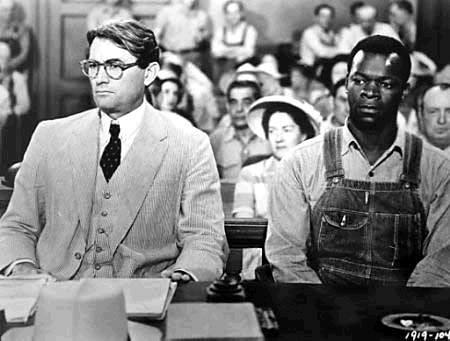
This month the public school district of Biloxi, Mississippi, came to the decision that “To Kill a Mockingbird” contains language too “uncomfortable” for middle school students to handle. As such, they are removing it from the curriculum.
Now, you might be asking yourself why you should care about what school kids in Biloxi are reading in their eighth grade English class. Unfortunately for us, this issue has implications that reach far beyond the classroom.
“To Kill a Mockingbird” sheds light on the topic of racism and the extreme consequences for black people in America. The book describes the story of a black man who is wrongfully accused of rape because he had the audacity to befriend a white woman. When his case is taken to trial, readers witness injustice within the judicial system. Readers see that the word of a white man is assumed to be true, while that of a black man is doubted and scrutinized.
Almost 60 years after its publication, the themes and topics are still as relevant as ever. For many students, “To Kill a Mockingbird” was the first book that introduced these topics in class discussion, offering students an opportunity to think critically about racism. These are issues that make us uncomfortable. It is uncomfortable to recognize that injustice still exists in a society that so often claims to be post-racial, but these are necessary conversations.
The school district’s claim that the language in the book is an issue speaks to the greater ignorance behind the removal. Though they were not specific in their statement, it seems clear that they are referring to white characters’ use of derogatory language in reference to black characters.
This is not the work of fiction. Black americans were treated, and are treated as less than. Taking the evidence of this from the shelves of our children does nothing to erase our nation’s ugly past. We do the children of this nation no favors when we deprive them of the right to the truth. Instead, we shame those who experienced these hardships by denying their truths. Discrimination is not a comfortable experience for the oppressed, so why should it be for the oppressor?
While I can understand the general desire to move forward, there can be no progress unless we understand what our problems are. We must first recognize that racism still exists before we can eradicate it. Literature has always had an important role in this struggle. It gives people who would not otherwise have a voice a chance to share their experience. It disseminated ideas across borders and stirred conversations before social media, and it continues to do so in our classrooms today.
It is important for students to read “To Kill a Mockingbird” in an academic setting because it gives students permission to question the status quo. While this is uncomfortable at first, it is nothing that the nation’s kids cannot handle. More often than not, in instances of banning books, it is the parents, not the kids and not the teachers, who put pressure on the district. It is time for parents to let their kids learn and start learning from their kids: leaning into the discomfort is the only way to truly move forward.

